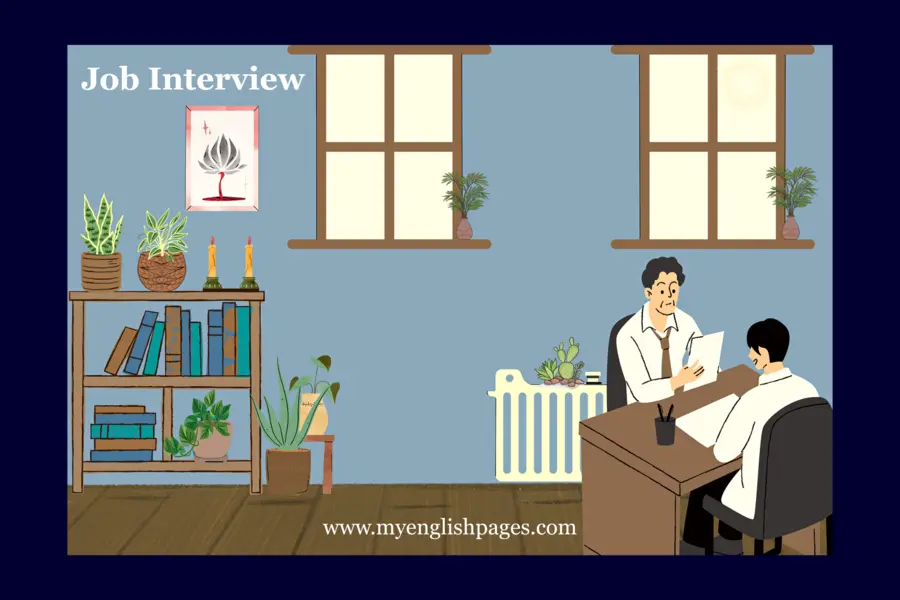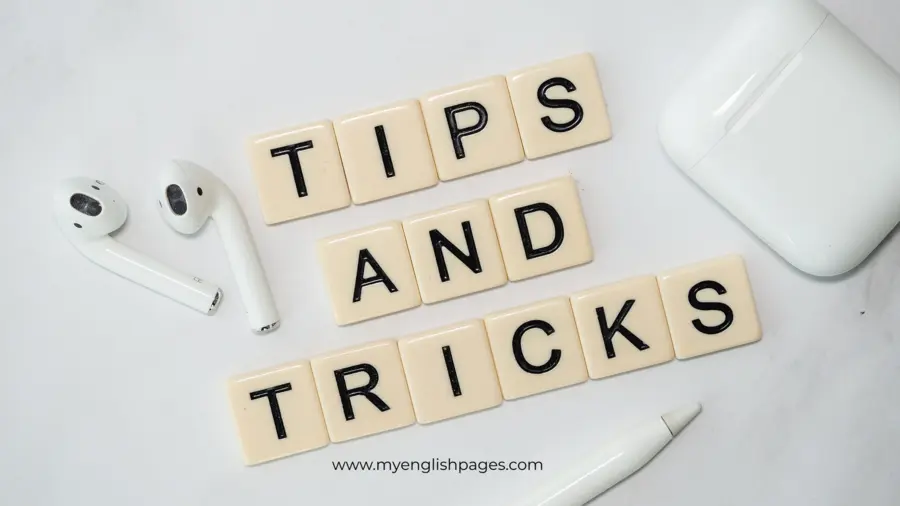Table of Contents
Introduction
Job interviews can be nerve-wracking, especially if English isn’t your first language. But with the right preparation, you can impress your interviewer and land the job! In this guide, we’ll cover:
- Common job interview questions for English speakers
- Best ways to answer (with examples)
- Useful vocabulary & phrases
- Tips to sound fluent and professional
Job Interview Sample Questions

These job interview sample questions will help you practice and feel fully prepared for your next opportunity. By reviewing these common questions, you’ll know exactly what to expect and how to craft strong, professional answers—even if English isn’t your first language.
Personal & Introductory Questions
- “Can you tell me about yourself?”
- Sample Answer: “I’m a [your job title] with [X] years of experience in [industry]. I specialize in [key skill] and have worked at companies like [previous employer]. I’m excited about this opportunity because [reason].”
- “Why are you interested in this position?”
- Answer: “I’ve always admired [Company Name] because of [reason]. My skills in [relevant skill] align well with the job requirements, and I believe I can contribute by [specific contribution].”
- “What are your strengths?”
- Answer: “I’m highly organized, a strong communicator, and work well under pressure. For example, in my last job, I [give an example].”
- “What is your greatest weakness?”
- Answer: “I sometimes focus too much on details, but I’ve learned to balance perfectionism with efficiency by setting clear priorities.”
- “How do you handle stress?”
- Answer: “I stay calm by planning ahead and breaking tasks into smaller steps. I also take short breaks to stay focused.”
Experience & Skills-Based Questions
- “What experience do you have in this field?”
- Answer: “I have [X] years of experience in [field], where I [describe key tasks]. At [previous company], I successfully [achievement].”
- “Why should we hire you?”
- Answer: “Because I have the right skills for this role, such as [skill 1] and [skill 2]. I’m also a fast learner and adapt quickly to new challenges.”
- “Tell me about a time you solved a problem at work.”
- Use STAR Method: “At my last job, [Situation]. My task was to [Task]. I [Action], and the result was [Result].”
- “What do you know about our company?”
- Answer: “I know that [Company Name] is a leader in [industry] and values [company value]. Your recent project on [example] was impressive!”
- “Describe a time you worked in a team.”
- Answer: “In my previous role, my team had to [task]. I helped by [your role], and we achieved [positive outcome].”
Behavioral & Situational Questions
- “How do you handle criticism?”
- Answer: “I see feedback as a chance to improve. For example, my manager once suggested [feedback], and I [how you improved].”
- “What would you do if you disagreed with a coworker?”
- Answer: “I’d listen to their perspective, explain mine politely, and find a compromise.”
- “Tell me about a time you failed.”
- Answer: “Once, I missed a deadline because [reason]. I learned to [lesson], and now I [improvement].”
- “How do you prioritize tasks?”
- Answer: “I make a to-do list, rank tasks by urgency, and focus on the most important ones first.”
- “What would you do in the first 30 days of this job?”
- Answer: “I’d learn company processes, build relationships with my team, and set short-term goals.”
Career Goals & Future Plans
- “Where do you see yourself in 5 years?”
- Answer: “I hope to grow within this company, taking on more responsibilities in [specific area].”
- “Why did you leave your last job?”
- Answer: “I wanted to find new challenges where I could use my skills in [skill] more effectively.”
- “What motivates you?”
- Answer: “I’m motivated by solving problems, learning new things, and seeing the impact of my work.”
- “What’s your ideal work environment?”
- Answer: “I thrive in collaborative teams where communication is clear and goals are well-defined.”
- “Are you willing to relocate/travel?”
- Answer: “Yes, I’m flexible and open to opportunities that help me grow professionally.”
Language & Communication Skills (For English Learners)
- “How would you describe your English level?”
- Answer: “I’m fluent in professional settings and continuously improving. I practice daily by [reading/watching/listening to English].”
- “Have you ever worked in an English-speaking environment?”
- Answer: “Yes, at [previous job], I communicated daily in English with [clients/team members].”
- “How do you handle language barriers?”
- Answer: “I ask for clarification when needed and use simple, clear language to ensure understanding.”
- “What’s the hardest part about communicating in English?”
- Answer: “Sometimes technical terms are challenging, but I prepare by studying industry vocabulary.”
- “Can you give a presentation in English?”
- Answer: “Yes, I’ve presented in English before. I prepare by practicing aloud and using visuals to support my points.”
Tricky & Unexpected Questions
- “What’s your salary expectation?”
- Answer: “Based on my experience and industry standards, I’m looking for around [range].”
- “Do you have any questions for us?”
- Ask: “What’s the biggest challenge for someone in this role?” or “How do you measure success here?”
- “How do you stay updated in your field?”
- Answer: “I read industry blogs, take online courses, and attend webinars.”
- “What’s a recent skill you’ve learned?”
- Answer: “I recently improved my [skill] by taking a course on [platform].”
- “What’s your biggest achievement?”
- Answer: “At [previous job], I [achievement], which helped the company [positive outcome].”
Bonus: 5 Quick Tips for English Learners in Interviews

- Practice with a native speaker (or record yourself).
- Use simple, clear sentences—avoid overly complex grammar.
- Prepare key vocabulary related to your job.
- Listen carefully—repeat the question if needed.
- Stay calm—pausing is better than saying “Umm…”
Need practice?


